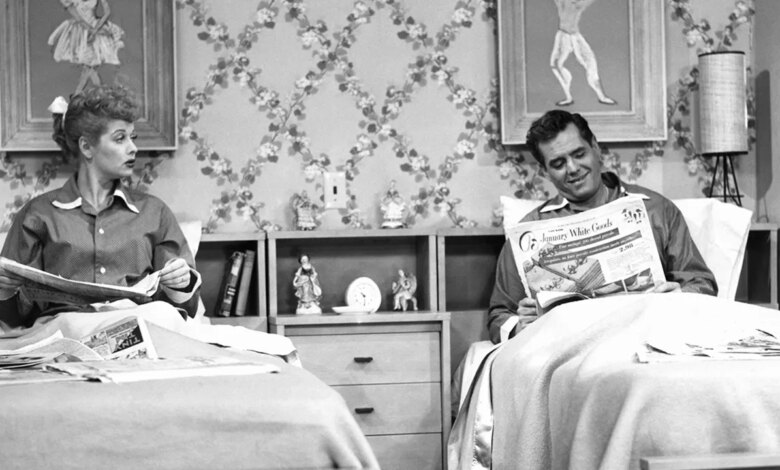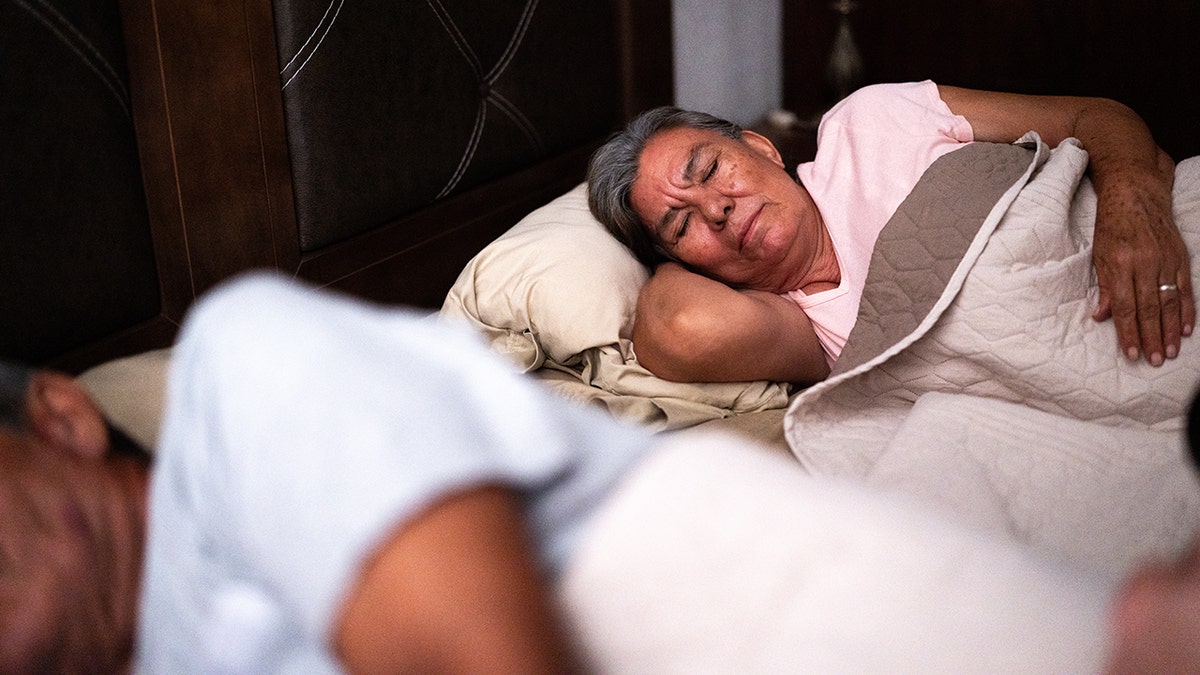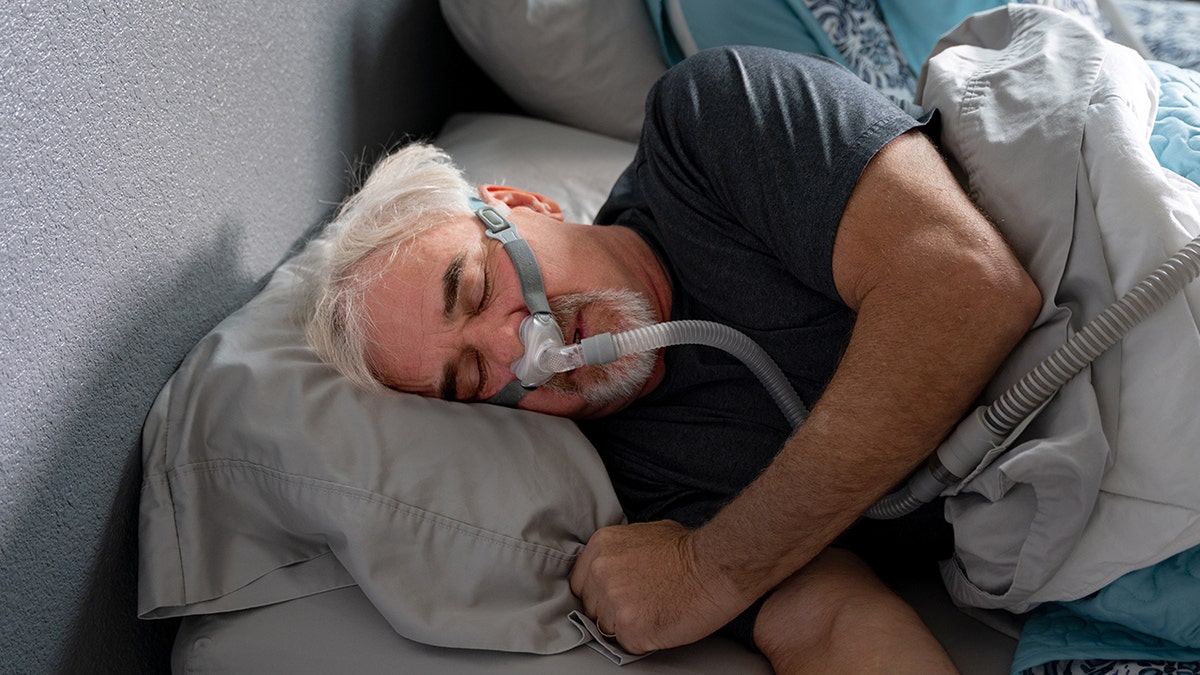Sleeping separately could decrease psychological well-being in older adults, study finds

NEWYou can now listen to Fox News articles!
Sleeping apart may not be the key to happiness in a relationship.
Recent trends such as “sleep divorce” have highlighted the benefits of sleeping separately from a partner, or even living in different rooms.
The Scandinavian Sleep Method, a cultural concept aimed at improving sleep quality in Nordic countries like Sweden and Norway, popularized the concept of using two separate duvets on one bed.
MATTHEW MCCONAUGHEY SWEARS A QUEEN BED HELPED MARRIAGE OF 13 YEARS
But a new study by Taiwanese researchers suggests that sleeping separately from your partner may decrease psychological well-being.
The study, published in the journal BMC Public Health, surveyed 860 older heterosexual couples in northern Taiwan to investigate the link between psychological well-being and sleep conditions.

Sleeping separately from your partner may worsen mental well-being, a new study suggests. (iStock)
The analysis took into account both individual and couple characteristics. Psychological well-being was measured by happiness, life satisfaction and fulfillment, while sleep measures were assessed using a detailed statistical method.
The results revealed that older couples who slept in separate bedrooms had poorer psychological well-being than couples who slept together.
COUPLES WHO Cuddle Before Sleep Reap Key Health Benefits, Study Reveals
For older couples, living arrangements, such as sharing a home, were less predictive of psychological well-being than sharing a sleeping space.
The researchers concluded that sleep arrangements represent an “important factor” in a couple’s psychological well-being. This highlights the importance of considering sleep “in the context of a couple relationship,” they noted.

Sleep arrangements represent an “important factor” in mental well-being, the researchers concluded. (iStock)
Wendy Troxel, Ph.D., senior scientist at the RAND Corporation and author of “Sharing the Blankets: Every Couple’s Guide to Better Sleep,” discussed the findings in an interview with Fox News Digital.
The Utah-based sleep expert, who was not involved in the study, noted that sleeping apart could impact personal well-being due to psychological distance or withdrawal from a partner.
HIDDEN DANGER OF SLEEP COULD INCREASE RISK OF 172 DISEASES, MAJOR STUDY REVEALS
“At first glance, this seems to confirm the common belief that sleeping apart signals something negative in a relationship,” she said.
CLICK HERE TO GET THE FOX NEWS APP
“What is unique about this new study is that it suggests that a couple’s sleep arrangements can influence well-being, highlighting how sleep and relationships are intimately linked to maintaining health throughout life,” Troxel added.
Limitations and other factors
Troxel noted that the study was cross-sectional, meaning it shows a relationship but cannot prove cause and effect.
“It may be that older couples who sleep apart already face health or sleep issues, such as chronic illnesses, sleep apnea or insomnia, that affect both their decision to sleep separately and their mental health,” Troxel added.

Couples who sleep apart may already be dealing with health or sleep issues, such as chronic illnesses, sleep apnea or insomnia, one expert noted. (iStock)
“The study also did not explore why or how couples made the decision to sleep apart, which is often the most important factor in determining the impact of that choice on the relationship.”
Older adults face a “double vulnerability” when it comes to sleep and mental health, Troxel said, as studies show that up to half of adults over 60 report symptoms of insomnia or another form of disrupted sleep.
CLICK HERE TO SUBSCRIBE TO OUR HEALTH NEWSLETTER
“As we age, sleep tends to be lighter and more fragmented, and we see a shift toward earlier bed and wake times, as well as a reduction in deep, slow-wave sleep,” she said.
Other mental factors such as depression, loneliness and anxiety are also more common with aging, which can further disrupt sleep and create a “feedback loop that harms mental health,” Troxel said.

Lucille Ball and Desi Arnaz sleep in separate beds during a scene from the iconic 1950s sitcom “I Love Lucy.” (Everett Collection)
Personalized routines
There is no one-size-fits-all for healthy sleep, according to Troxel.
“For some, sharing a bed promotes closeness and safety,” she said. “For others, especially when sleep disorders or incompatible habits are at play, separate bedrooms may be a wise and health-promoting choice, as long as couples make this decision through open and honest communication.”
TEST YOURSELF WITH OUR LATEST LIFESTYLE QUIZ
Troxel noted “strong evidence” that physical proximity, such as hugs, can benefit mental health.
Sleeping together and cuddling can trigger the release of oxytocin, considered the “love” hormone, and can also reduce stress hormones and promote a sense of security, which can help with emotional regulation and sleep quality.

According to a study, snuggling can reduce stress and promote a feeling of security. (iStock)
Despite these benefits, partners who move in bed, snore, and have different body temperatures can also cause sleep disruption and deprivation, Troxel noted.
“Chronic poor sleep erodes mood, empathy and patience, key ingredients of a healthy relationship,” she said.
CLICK HERE FOR MORE HEALTH STORIES
Couples who choose to sleep separately can still maintain connection and intimacy by sharing a relaxing evening routine before heading off to sleep separately, Troxel suggested.
“Ultimately, the healthiest sleep structure is one that promotes consistent, quality sleep, emotional connection, and long-term well-being.”



